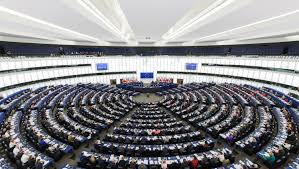There is a very very interesting and thoughtful article from a pro-EU writer who has penned an article for this week’s Spectator magazine. The article by Fredrik Erixon entitled “A populist surge in the May 2019 elections could change the face of the EU forever” muses over what the composition of the next EU Parliament will be. He believes that an influx of populist members from across the EU could upset the EU applecart. Mr Erixon stated that this influx of populists of both Right and Left may even bring about some of the reform of the EU that was impossible in the past due to an attitude from across the political spectrum that what was needed is ‘more Europe’.
I happen to believe that Mr Erixon may well be correct in his assessment of the situation. Although populists have been elected to individual national governments or as members of the various legislatures, populism has never been a major factor in the EU Parliament. This time things may be different. There is indeed a crisis of confidence on both the Centre Left and the Centre Right with these groups now unable to win elections like they used to be able to do and it was these groupings that kept the flame of ‘more Europe’ alive. With the Right is heading further right and the Left heading, like the UK Labour Party further Left it is likely that the next EU Parliament will be comprised of more members who are hostile to federalism and more favourable to the idea of EU reform than previously.
A couple of the passages from this article caught my eye and I would advise people to read the whole article as it is both interesting and informative to see these opinions being expressed by a writer who is pro-EU. Mr Erixon is correct in stating that the changes that have occurred in Europe’s political make up have happened pretty rapidly. Just a few years ago it looked like policies that promised ‘more Europe’ and more European integration looked like winners, now however that situation has changed.
Mr Erixon said:
We can now see a coherence across Europe’s populists. And not because Steve Bannon or anyone else is building a nationalist populist movement across the continent. The populists do not specialise in working together, which in some ways is their whole point. But many of these parties have now been around for a while and matured, and speak for vast swaths of the population: a third of France, half of Hungary and most of Italy. They used shock tactics to get attention, but are changing as they wield power. As they have grown bigger — or been elected to govern — they have learnt the virtue of patience and the art of compromise.
So what began as a bunch of polemicists and rabble-rousers is now sprouting -networks of thinkers, journals and institutes. There is growing consistency in their policies, more discipline in the troops. They are nationalist and (mostly) xenophobic — but not exactly racist and fascist. They are Eurosceptic but (unlike the Tories) not against EU membership. They seek to break down the door, but not tear down the house. The distinction is crucial in understanding what is now under way.
Viktor Orban in Hungary, Matteo Salvini in Italy, Jaroslaw Kaczynski in Poland and Alice Weidel in Germany: all of them want to reform, rather than leave, the EU. They think the EU has overreached, and they want power to be handed back from Brussels to the nation states. They have no collective agenda for Europe, and this is entirely their point: they dislike the idea of unanimity. Diversity, they say, is the hallmark of Europe and they want an EU which respects that. That message has power partly because the populists’ gains have made the centre-left and the centre-right start to question their own approach to Europe.
I believe that Mr Erixon is correct in his assessment of the situation regarding the EU Parliament. There is less of an appetite among EU voters for the ‘more Europe’ policies of the past and the likes of Jean-Claude Juncker and Guy Verhofstadt are looking more and more like political figures of the past rather than of the present or the future.
The EU Parliament elections in May, which Britain is not taking part in because we are hopefully leaving the EU, will be very interesting to observe. What is looking likely is that we may be facing a situation where nations that may have previously held onto the centre Left and centre Right nurse for fear of finding something worse, may choose EU parliamentarians that are radically different from those that have gone before. I tend to agree with Mr Erixon that the EU Parliament is in for ‘interesting times’ and whether this new broom destroys the EU or reforms it only time will properly tell.





